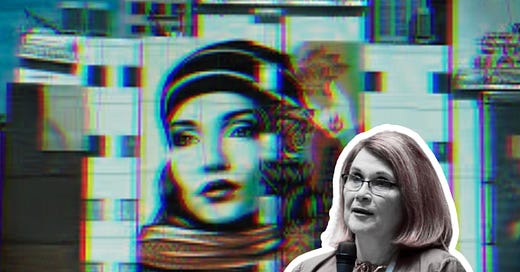Washington lawmakers want taxpayer-funded art loans—because buying paintings is apparently a government responsibility
Struggling with housing, taxes, or crime? Olympia says you should take out a state-backed loan… for art.
Washington lawmakers, led by Rep. Sharon Wylie (D-Vancouver), are pushing House Bill 1841, which would create the "Own Your Own Art" purchase program, allowing people to take out state-funded, interest-free loans to buy artwork.
Supporters claim this will help "stimulate the arts economy," but in reality, it’s a government-backed credit program for luxury purchases, forcing taxpayers to subsidize private art collections.
If HB 1841 passes, expect:
Your tax dollars funding art purchases instead of real priorities
A state-run loan program that benefits a select group of buyers and artists
More government overreach into personal finance decisions
This isn’t about supporting artists—it’s about politicians looking for ways to spend your money on pet projects while ignoring Washington’s real problems.
What HB 1841 does
HB 1841 creates a new state program where Washington residents can apply for interest-free or low-interest loans to buy artwork.
The loans will range from $750 to $3,500 and must be repaid in 12 equal monthly installments.
Only artwork created by Washington state artists is eligible for purchase under the program.
The state will set up a loan collection process and charge late fees for missed payments.
The program will receive a taxpayer-funded budget allocation from the state’s general fund.
This means the government will act as an art lender, handing out taxpayer-backed loans so people can buy paintings and sculptures instead of funding real priorities.
Why this bill is absurd
It’s a taxpayer-funded loan program for non-essential purchases
Washington is facing a housing crisis, skyrocketing living costs, and businesses leaving the state—but lawmakers think giving people no-interest loans for artwork is the best use of taxpayer dollars?
Shouldn’t Washington prioritize housing, education, and public safety over subsidizing personal art collections?
Why is the state acting like an art dealer instead of fixing the issues residents actually care about?
If someone wants to buy artwork, shouldn’t they do so with their own money—not taxpayer-backed loans?
This bill prioritizes luxury purchases over real economic concerns.
It picks winners and losers in the art market
This program exclusively benefits Washington-based artists—meaning the state will actively discriminate against artists from outside the state.
Why should the government decide which artists get funding and which don’t?
What happens to artists who aren’t included in the state’s approved list?
Is it really the government’s job to prop up a specific industry with state-backed loans?
Rather than letting the free market decide which artists succeed, HB 1841 creates an artificial government-backed advantage for select artists.
It expands government into personal finance decisions
The government has no business acting as a bank, but HB 1841 turns the state into a lender for discretionary purchases.
What happens when borrowers default on these loans?
How much taxpayer money will be wasted trying to collect payments?
Will this set a precedent for future state-backed loan programs for other industries?
This bill opens the door for even more government interference in financial decisions.
Who benefits from this bill?
Artists who will have a state-backed customer base.
Collectors who want to buy artwork with no-interest loans.
Politicians who can claim they "supported the arts" while ignoring real problems.
Who doesn’t benefit?
Taxpayers, who will foot the bill for unnecessary government spending.
People struggling with rent, groceries, and inflation—who don’t qualify for no-interest loans.
Small businesses and other industries that don’t get taxpayer-backed funding.
This isn’t about promoting art—it’s about government overreach into private financial decisions.
What’s next?
If HB 1841 passes, expect:
More unnecessary government-run loan programs.
More wasteful spending that benefits a select few at taxpayer expense.
A growing government role in areas it has no business regulating.
Instead of fixing Washington’s economic problems, lawmakers are turning the state into an interest-free lender for art collectors.




